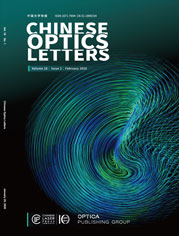Participation in the absolute gravity comparison with a compact cold atom gravimeter

A compact cold atom gravimeter participating in the Comparison of Absolute Gravimeters.
High-precision measurement of absolute gravity is very important in Geophysics, Geodesy, Hydrology, Seismology, etc. It is difficult to evaluate the accuracy of an absolute gravimeter (AG) by itself, since the local absolute gravity value is always changing with time and position. Therefore, the comparison between different high-precision absolute gravimeters is of great importance for the evaluation of the instrument accuracy.
Researchers from Zhejiang University of Technology and Zhejiang University reported their compact cold atom gravimeter (CCAG) for participating in the first Asia-Pacific Comparison of Absolute Gravimeters (APMP.M.G-K1), which was the first CCAG participating in a Regional Absolute Gravity Comparison in China. The principle of the CCAG is based on the matter wave interference. The test mass in the CCAG is the microcosmic atoms rather than the classic object, which makes the CCAG more suitable for the continuous gravity monitoring. The accuracy of this gravimeter was evaluated to be about 19 μGal after the correction of the main systematic errors. The sensitivity was estimated to be 90 without any vibration isolation system during measurement. This work has been published in Chinese Optics Letters, Volume 17, Issue 1, 2019 (Zhijie Fu, et al., Participation in the absolute gravity comparison with a compact cold atom gravimeter).
Professor Qiang Lin, director of the group, believes that there are still spaces to improve the absolute accuracy of the CCAG. The successful participation and measurement of the CCAG in the APMP.M.G-K1 provides valuable experiences for the improvement of this kind of gravimeter.
Based on the comparison results, further work will be focused on the improvement of accuracy and the suppression of systematic noises.
COL封面故事:一台参与绝对重力比对的小型化冷原子重力仪

参与绝对重力比对的小型化冷原子重力仪
高精度绝对重力测量在地球物理、测地学、水文学、地震学等领域都有着广泛的应用。由于地球重力场随时间与空间都会发生变化,绝对重力仪的测量精度难以用它自己在不同时间或空间的测量值来评估。因此,比对是评价高精度绝对重力仪精度的非常重要的一种方法。
来自浙江工业大学和浙江大学的研究团队利用自己研制的小型化冷原子重力仪参加了第一届亚太区域绝对重力比对(APMP.M.G-K1),成为国内首台参加绝对重力比对的冷原子重力仪。冷原子重力仪的基本原理是基于物质波的干涉,其敏感物质是微观原子,而不是宏观的物体,这使得冷原子重力仪更适合于连续重力观测。在对主要的系统误差进行修正后,该重力仪的绝对测量精度约为19 μGal。在无任何隔振系统的情况下,仪器的灵敏度达到了90 。该成果发表在Chinese Optics Letters 2019年第17卷第1期上(Zhijie Fu, et al., Participation in the absolute gravity comparison with a compact cold atom gravimeter)。
该研究团队的负责人林强教授认为,冷原子绝对重力仪的测量精度仍然有提升的空间。这台冷原子重力仪成功参加了APMP.M.G-K1的比对测量,将为同类仪器的改进提供宝贵的经验。
基于本次绝对重力比对结果,下一步工作将主要致力于冷原子重力仪精度的提高以及系统噪声的抑制。

